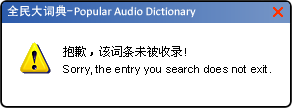安全【ān quán】
1. safe; secure 2. safety; security; sureness
[形] 1、没有危险,不受威胁,不出事故 [名] 2、有保障,没危险
 尽管飞机出现故障,但还是安全着陆了。 The plane landed safely despite the trouble.
 为了大家的安全,我们等天亮后再出发吧。 We'd better set off after daybreak for the sake of our safety.
安然无恙【ān rán wú yàng】
safe and sound
[成]原指人平安没有疾病,现泛指事物平安未遭损害
 看到儿子安然无恙,妈妈松了一口气。 Seeing that the son was safe and sound, the mother breathed a sigh of relief.
安慰【ān wèi】
1. comfort; console 2. comfort
[动] 1、使人心情安适 [名] 2、心情安适
 他的心情不好,你要多安慰他。 He is moody and you should console him more.
 受伤那段时间,领导的关心给了我很大的安慰。 The leaders gave me great comfort during my recovery.
|
安稳【ān wěn】
smooth and steady; stable and peaceful
[形]稳当,平稳,没有变化或波动;沉静、稳重
 一般的老百姓只求安稳地过日子。 What the populace long for is a stable and peaceful life.
安详【ān xiáng】
serene; calm
[形] 表情平静,动作从容不迫
 奶奶去世时,脸上还留着安详的笑容。 My grandmother passed away with a calm and serene smile on the face.
安心【ān xīn】
be relieved; set one's mind at rest
[动短]心情安定
 医生表明手术是安全的,这让病人安心下来。 The patient was not relieved until the doctor told him that the operation would be safe.
|
安置【ān zhì】
find a place for; help settle down; arrange for
[动] 使人或事物有着落
 地震发生后,政府要首先安置受灾的群众。 After the earthquake, the government should immediately find places to arrange for the afflicted people.
安装【ān zhuāng】
build in; fix; install; mount
[动]按照一定的方法、规格把机械或器材(多指成套的)固定在一定的地方
 工人正在为我们安装新的取暖装置。 The workers are installing a new heating system for us.
岸【àn】
bank; shore
[名] 江、河、湖、海等水边的陆地
 春天到了,河两岸的柳树也绿了。 Spring arrives and the willows on the banks of the river are sprouting.
|
